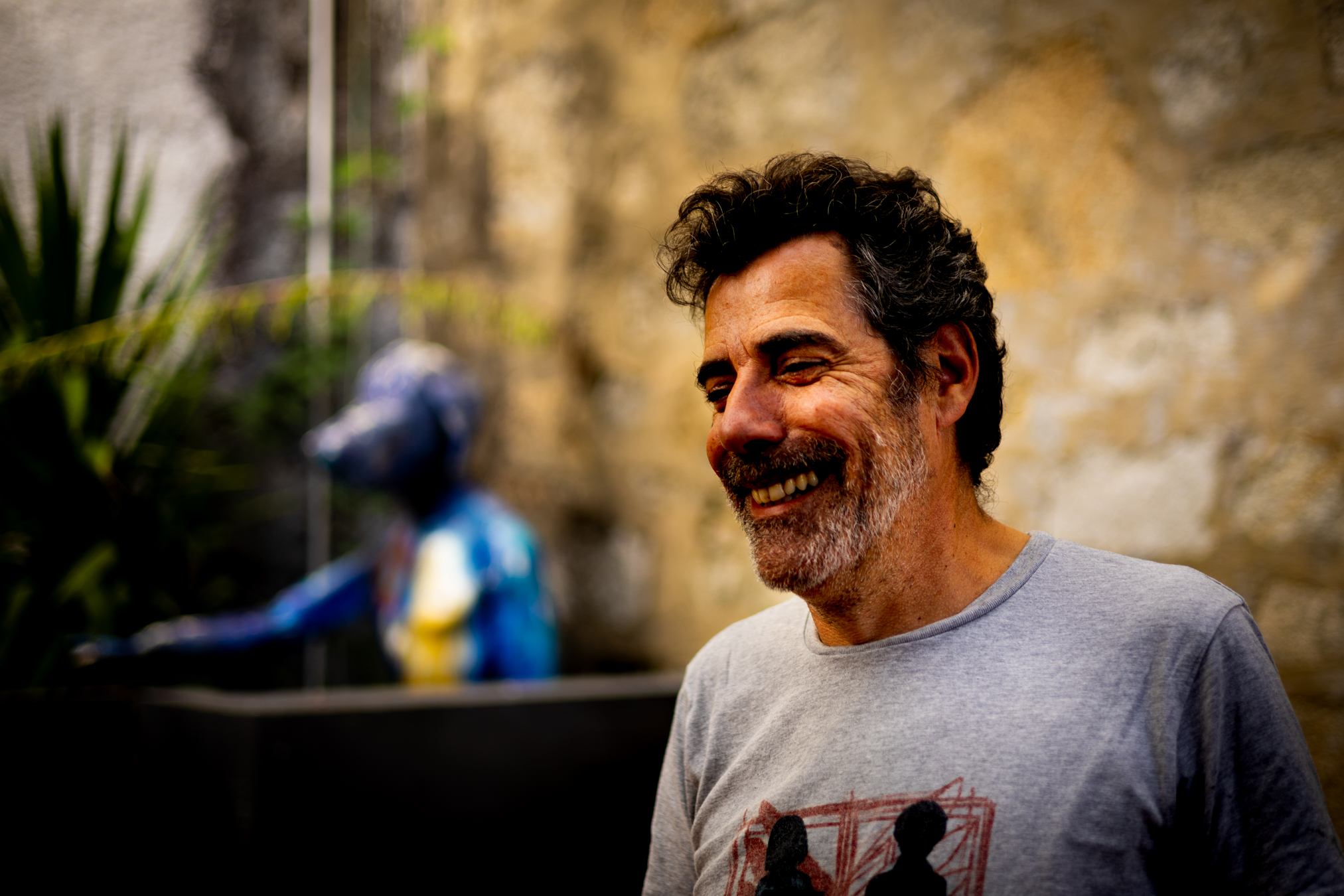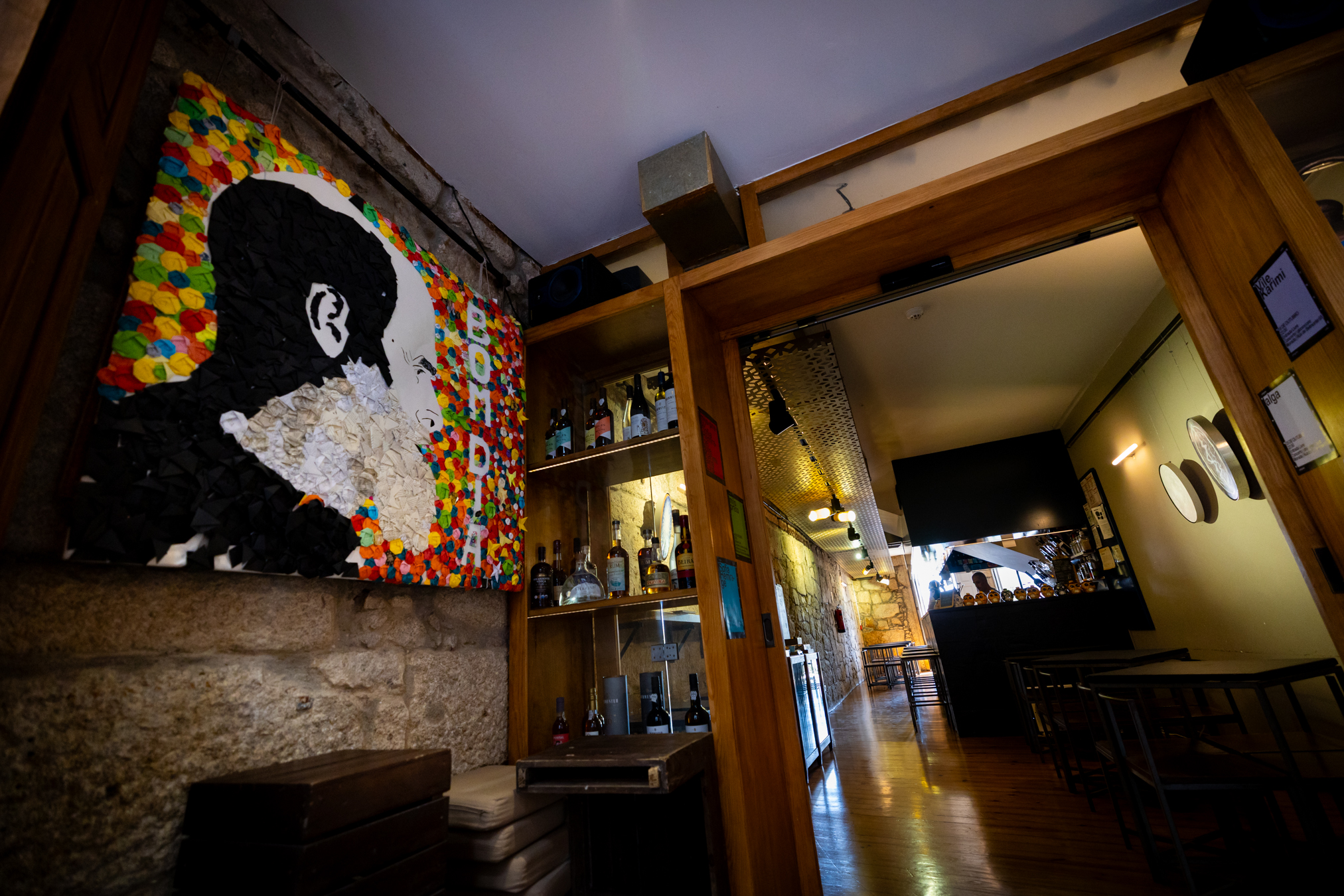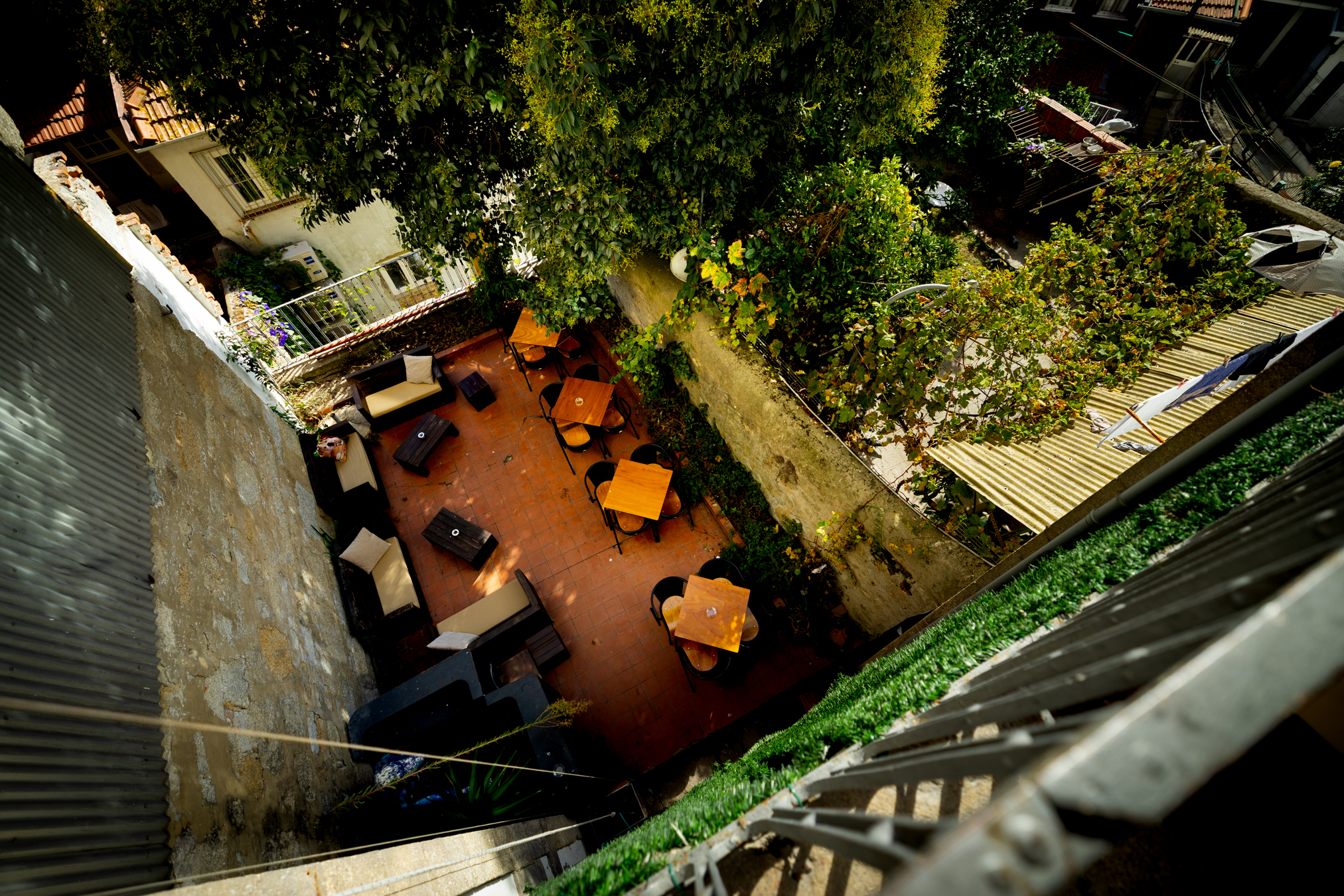EN

Novembro 2025
Café Pinguim is not new, and it is very proud of that. Founded in 1987, it has kept its founding principles intact—a fervent dedication to poetry and the creation of a space where it is easy to return again and again. However, after the death of Paulo Pires, Pinguim went through a period of self-management. It was in March this year that actor and director Rui Spranger took on the challenge of joining a new team that wants to revitalize this Porto classic with (almost) daily programming. We spoke with him to understand the lexicon with which Pinguim expresses itself.

© Sofia Hugens
The Penguin is a place that is known almost by heart, like an urban monument that serves as a reference point for those who still give directions instead of sending a pin on a digital map. If all else fails, the doors remain the same brick red as always, catching the eye of climbers who ascend from the riverbank to Virtudes and take advantage of the flatness of Rua de Belomonte to rest. Those who enter are greeted by an origami picture of Paulo Pires, the previous owner. Moving on, you go around the massive bar to find a free table—tables with slate tops, where anyone can ask for chalk to scribble some ephemeral art.
It is at one of these tables that we talk to Rui Spranger—he may have only recently taken on the role of co-owner of Pinguim, but he has been a fixture here for a long time. It was 2002 when, after a period of theatrical creation in the city of Viana do Castelo, Rui decided to return to Porto. “At the time, I had the idea of being a bartender, and I started working at Gesto, which Paulo also managed,” he tells us. Even then, Pinguim had the old coat of arms of the Poetry Nights, created by Joaquim Castro Caldas, which Rui produced. The format was simple: open mic nights, on uncertain weekdays, to recite poetry that competed for air in the room with the wisps of cigarette smoke.

© Sofia Hugens
Six years later, in 2008, Rui Spranger was close to deciding to leave Pinguim and look for a new place to settle down. But that year Joaquim Castro Caldas passed away, and the funeral took place on a Monday: “Pedro Lamares called me to say that everyone should meet at Pinguim after the funeral. And we were here, among friends. It was on that day that I decided to stay, but I told Pualo: this will now be on Mondays, and I will have guest musicians."
This is still the usual format: every Monday, with space for music and poetry. The only two small differences are that smoking is no longer allowed inside, and that there are now limited opening hours — “Those nights were hellish, ending at four or five in the morning, however long it lasted. You ended up having two shifts: those who were there from the beginning and left around one in the morning, and those who arrived after two, already very drunk.” Rui does not see any conflict between music and poetry competing for space: “The musicians who come here know that this is a space for poetry. And besides, we don’t accompany poetry with music—in my opinion, when music is not composed for that specific poem, it becomes very lyrical in the worst sense of the word. It puts everyone to sleep.”

© Sofia Hugens
The long history of poetry nights will be celebrated this month with the launch of a book commemorating the 35th anniversary of its founding, celebrated in March: “When we launched the 25th anniversary book, the musicians were left out a little, so this book will come with a CD.” In addition, the book has its eyes set on the future: “All the poets in the book are under 35.” This is something Rui is proud of, because “poetry is often associated with older people, but we have many young customers here—and I'm talking about regular customers, not one-time visitors.”
But the new Pinguim doesn't live by poetry alone — it's open every day of the week, and in addition to the sacred Monday slot, there are performances on Wednesdays (“Not so much from a theater perspective, but more dance,” Rui points out), stand-up comedy on Thursdays, live music on Friday and Saturday evenings, and a get-together on Sunday afternoons, which we are told is a “refuge for night workers.” The more attentive among you will have noticed that one day is not filled, but Rui says that “Tuesday is the only day we don't have any programming, but I hope to remedy that soon — I'd like to have something on that day about thinking, I don't know if strictly philosophy or something more free.”
Share
FB
X
WA
LINK
Relacionados


